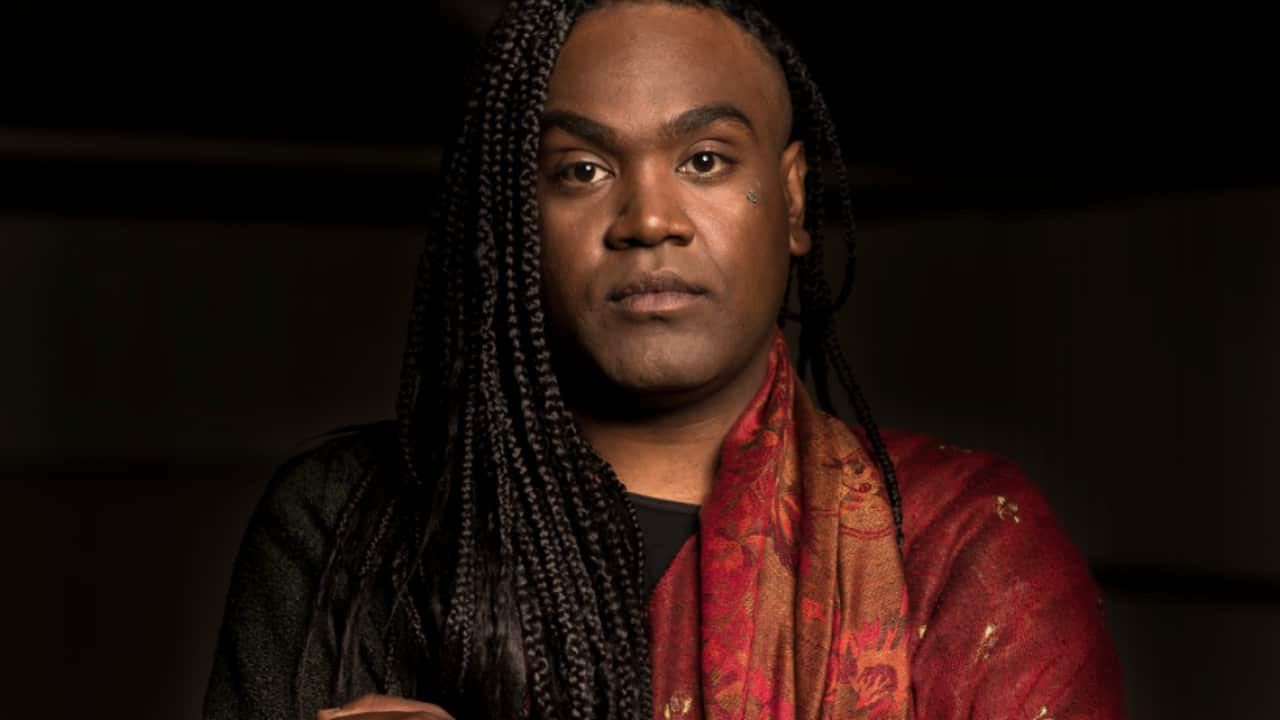The Eurovision Song Contest is upon us for another year - and with it, a year's supply of glitter and campness.
While we'll be cheering on Australia's very own Kate Miller-Heidke, we'll also be keeping an eye out for great queer musical talent from all across Europe. For decades the Eurovision stage has been seen as an opportunity for marginalised groups to showcase their talent and reach across political divides - and this year could be no different.
To help get you in the Eurovision mood, here are some of the most memorable, sparkly, exciting performances from LGBTIQ+ entrants in recent history:
Sestre, Slovenia (2002)
A harmonising trio of drag queens dressed as flight attendants? Sign us up!
In 2002, little-known Slovenian drag group Sestre weathered a storm of controversy to place 13th in the Eurovision Song Contest. Despite anti-gay activists protesting on the streets of Slovenia's capital, Ljubljana, the trio won fans around the world with their performance of 'Samo Ljubezen (Only Love)'.
Still, their participation , with protests even reaching parliament and the European Union.
Ketil Stokkan, Norway (1986)
In 1986, Norway's Ketil Stokkan performed his song 'Romeo' alongside a member of the Great Garlic Girls, a well-known drag group. The performance represented the first time a sexual minority had ever been visible onstage at Eurovision.
Paul Oscar, Iceland (1997)
Considered by many Eurovision die-hards as being ahead of his time, Iceland's became the first openly gay singer to perform at Eurovision in 1997. Singing a song he wrote titled 'Minn Hinsti Sance (My Final Dance)', Oscar placed 20th out of 25 entries - however, his choice of tight pants sparked a lot of conversation at the time.
Oscar is a vocal LGBTIQ+ activist in Iceland to this day.
Verka Serduchka, Ukraine (2007)
As far as campness goes, there's no looking past Ukraine's 2007 entrant, drag queen Verka Serduchka.
Dreamed up by comedian Andriy Danylko (like a Ukrainian Dame Edna Everage), Serduchka's selection was highly controversial at the time, with Ukrainian politicians arguing that she was for the competition.
However, Serduchka came out on top with her performance of certified bop 'Dancing Lasha' - winning over viewers all around the world to become Ukraine's best placing Eurovision entrant since the country won in 2004.
Dana International, Israel (1998)
Trans woman Dana International won Eurovision for Israel with her performance of 'Diva' in 1998, with the song becoming a smash hit around the world.
Having undergone gender affirming surgery in 1993, International overcame strong objections from members of the local Orthodox Jewish community to represent her country. She later attempted to make a comeback, representing Israel for a second time in 2011 - but failed to make it past the semi-finals.
DQ, Denmark (2007)
Danish drag queen DQ (AKA Peter Andersen) wowed viewers with her flamboyant pink-feathered dress in 2007, becoming the first drag solo act in Eurovision history. Despite not making it through to the finals, DQ's entry song 'Drama Queen' was loved by members of the LGBTIQ+ community and soon became a go-to disco track at gay clubs.
Conchita Wurst, Austria (2014)
One of the LGBTIQ+ community's greatest success stories, Austrian drag performer Conchita Wurst (the alter-ego of Tom Neuwirth) stormed to victory in 2014 with her power ballad 'Rise like a phoenix'. Wurst has since become a vocal advocate for LGBTIQ+ rights, appearing at Pride festivals around the world (including Sydney's Gay and Lesbian Mardi Gras) and even addressing the United Nations.
Following the of the Eurovision Song Contest this year, SBS is holding a week-long festival of Eurovision from 10-17 May, culminating in brand new alternative programming for Eurovision 2020 this weekend.
We celebrate the 2020 artists and songs with SBS’s very own Eurovision 2020: Big Night In! premiering Saturday 16 May at 7.30pm. SBS invited Australia to vote for their favourite three 2020 Eurovision acts from all competing nations () - watch as we countdown the results over three big hours, and catch performances from some very special guests.
Join the conversation on Twitter and have the chance to see your tweets and lounge room party pics on screen during Eurovision 2020: Big Night In! by using #SBSEurovision #BigNightIn.
Airing on SBS on Sunday 17 May at 8.30pm will be a special two-hour program from the Netherlands.




